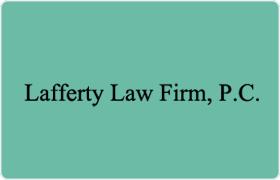Fosterville Bankruptcy & Debt Lawyer, Tennessee
Sponsored Law Firm
-
 x
x

Click For More Info:
-
Lafferty Law Firm, P.C.
1321 Murfreesboro Pike Suite 521 Nashville, TN 37217» view mapBankruptcy & Debt Over 30 Years Of Experience
Susan S. Lafferty is a CPA and Attorney who enjoys helping people with financial problems. She is located in Nashville, TN where she has lived for over 30 years.
800-936-9071
Michelle Day Reynolds
Alimony & Spousal Support, Adoption, Banking & Finance, Bankruptcy
Status: In Good Standing
FREE CONSULTATION
CONTACTFREE CONSULTATION
CONTACTRalph Edward Krisher
Labor Law, Elder Law, Insurance, Bankruptcy
Status: In Good Standing Licensed: 26 Years
Ginger Bobo Shofner
Litigation, Federal Appellate Practice, Reorganization, Bankruptcy
Status: In Good Standing Licensed: 32 Years
Ginger Shofner
Litigation, Federal Appellate Practice, Reorganization, Bankruptcy
Status: In Good Standing Licensed: 32 Years
C. Kelly Wilson
Workers' Compensation, Family Law, Bankruptcy, Personal Injury
Status: In Good Standing
Kris Matthew Oliver
Insurance, Reorganization, Estate Planning, Litigation
Status: In Good Standing Licensed: 13 Years
Nicholas Christiansen
Corporate, Reorganization, Products Liability, Civil Rights
Status: In Good Standing Licensed: 14 Years
Nicholas Clinton Christiansen
Corporate, Reorganization, Products Liability, Civil Rights
Status: In Good Standing
 Susan Lafferty Nashville, TN
Susan Lafferty Nashville, TN Practice AreasExpertise
Practice AreasExpertise
